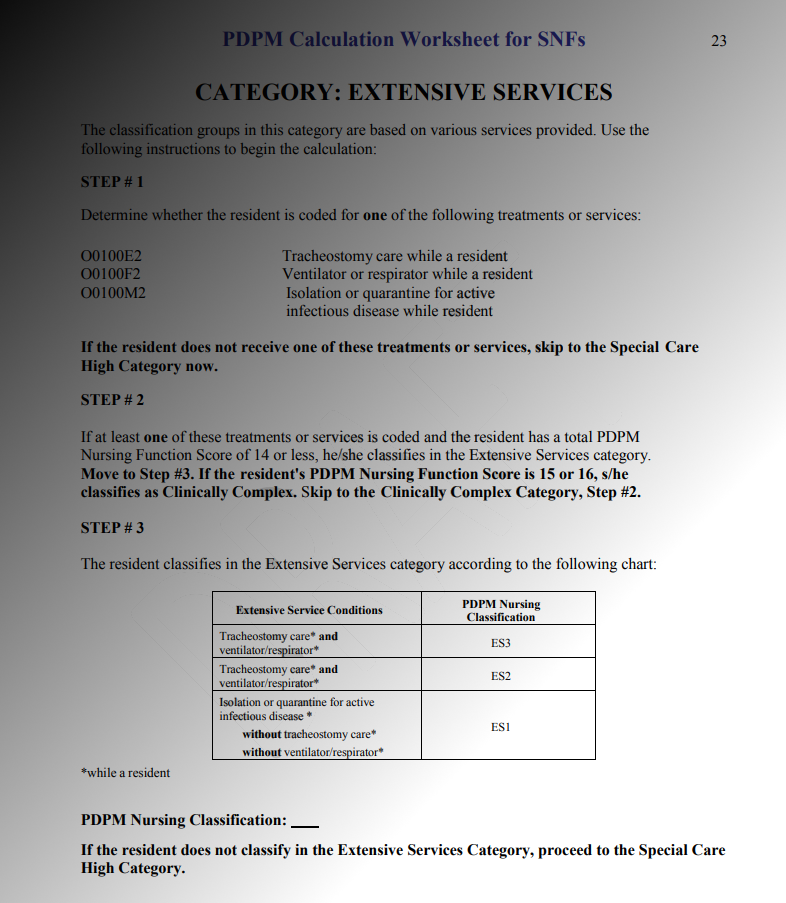As the SNF world draws its collective breath and begins to consider the Patient Driven Payment Model (PDPM), the new reimbursement system that will drive payment for Medicare Part A for SNFs starting October 1, 2019, there are many questions and misunderstandings. Because of the major changes to the payment system, compared to RUG IV / 66, particularly with regard to the reduced assessment requirement, a question I hear often is, “What will happen to the MDS Nurse?” “Will they still be important?”
My short answer is an emphatic, YES! Recently I responded to that question in another blog post with the following; “Never in the history of MDS and PPS has there been a time where the MDS nurse can truly be a nurse and do the things they were trained to do. The PDPM will require that the MDS nurse be accomplished and capable resident condition assessors. It is a challenging yet rewarding time to be an MDS professional and it is my opinion that accomplished and capable MDS professionals will be one of the most highly sought-after individuals in LTC.” I stand by that statement.
The reasons that I know this will be true have to do with what PDPM will require for facilities to be successful under this payment system. First, none of the skills for which these nurses are currently seen as valuable will disappear. In fact, revised conditions of participation requirements, PBJ, 5-Star, QRP, MDS assessment completion, CAAs, Care Planning, and really the whole RAI process, are here to stay and are all driven by accurate and timely MDS completion.
In addition to these, PDPM is a payment system that is driven by resident characteristics, not service metrics like RUG 66 is currently. Facilities will need MDS nurses who are competent ICD-10 coders. All payment categories under PDPM, PT, OT, SLP, Nursing and Non-Therapy Ancillary or NTA, are defined to one degree or another by appropriate ICD-10 coding. MDS nurses will need to be capable and proficient at this skill and understand how ICD-10 will intersect with PDPM so that the initial reimbursement gets off to the appropriate start.
Also, because PDPM is resident characteristic driven, understanding the entire reason the resident will be receiving care at your SNF will be critically important. Currently, much of the reimbursement that flows to SNFs is driven by therapy services. Not so under PDPM. The amount of therapy provided to a resident will have no impact on the amount that Medicare will reimburse a facility. When PDPM arrives, each resident will need to be individually and intricately assessed since each of the payment categories will be uniquely constructed by the resident’s individual clinical characteristics. Getting this process right will be the only way providers can be sure they are being appropriately reimbursed by Medicare.
Finally, the only Medicare required assessments under PDPM will be the 5-Day and Part A PPS Discharge assessments. The 5-Day assessment will set payment amounts for the resident’s entire Part A stay, so getting this one assessment right will be paramount. As of the publication of the FY 2019 SNF PPS final rule, CMS will allow what is called an Interim Payment Assessment or IPA. This assessment will be voluntary, completed at the providers discretion, when any of the payment categories payment amount changes and the provider wishes to capture the new rate. CMS has yet to publish more specific rules governing this assessment type. However, as of the current rule it will be to the providers benefit to complete this. Successful completion of an IPA will require that someone has their eye on the broad range of elements that contribute to PDPM payment as well as which of those elements are attributable to a given resident throughout his or her stay. Not paying attention at this level of detail will cost providers no small chunk of change. The MDS nurse will be an integral asset that will allow providers to navigate these processes successfully.
So, I repeat, under PDPM the MDS nurse will not lessen in his or her importance despite what some may be saying. As I stated earlier when PDPM arrives, “…it is my opinion that accomplished and capable MDS professionals will be one of the most highly sought-after individuals in LTC.” I stand by that statement. Providers who fail to understand the MDS nurse’s importance then, as now, are simply shortsighted.

